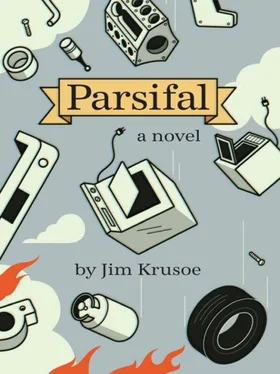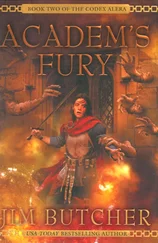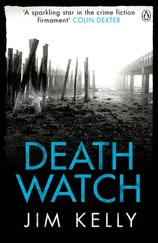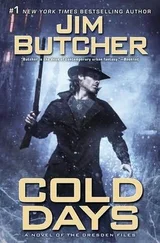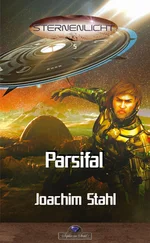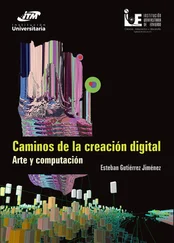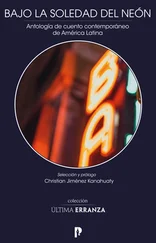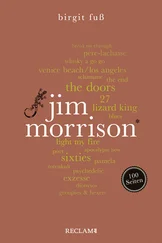A second and more cost-effective explanation was that at one point or another he personally had been outfitted with some sort of homing device, a small metal transmitter that told the drone, or whatever it was, where to find him, where to train its mechanical eye. But how would such a homing device have been attached? When he thought about it, it could have been at almost any time: Just the other day, for example, Ben, his normally genial barber, had apologized for accidentally striking the top of Parsifal’s head with his scissors’ point, but had it really been an accident? Or could it have been his dentist, Doctor Spolidoro? Who knew what went on in one’s mouth when one’s tooth was being filled? Or how about the doctor, whatever his name was, who had performed a colonoscopy a little while back?
Still, once he entered the protective canopy of the forest there was a good chance that whatever it was, whether a bird or a drone, would not find it so easy to follow him.
Well, a pretty good chance.
A fair chance.
Frequently strangers will ask, “Parsifal, are your parents still alive?”
He does not know what compels people to inquire about such things, but he hopes it is sympathy, and not pity. When he tells them they are not, they inevitably add that they are sorry, though why they should be sorry is puzzling, because they have never met his parents, and, when Parsifal points this out, the conversation stops and they walk away.
As a result, these people never have a chance to hear how Conrad, his father, who spent a large part of his life hating the forest and mostly remained a stranger to it, disappeared one day never to be seen again. Or how Pearl, who had spent much of her life believing the forest would protect her, came to be disappointed in the end.
First do no harm .
Which brings up, in a way, that whole business with the Happy Bunny Preschool.
Or it may be that a monster is simply anyone who does not ask the question as to whether he is a monster or he isn’t.
Parsifal thought that was what he should have told the librarian when she brought the subject up, but by then she had disappeared.
He should have asked Joe, but now he was gone, too.
“It rains in my heart like it rains on the town; so what exactly is this sadness that creeps into my heart?” The Frenchman Paul Verlaine would not be asking that question, Parsifal thought, if he had grown up in the forest, wrapped in an itchy wool blanket, lying on a bed of crumpled stock certificates, listening to the drip, drip, drip of the rain on the leaves (so like the tapping of blind men’s canes!), feeling the dark of everything that was the past and the dark of all still to come, secure in the knowledge that any dream in search of a recipient would surely not be able to find its way over the leaf-strewn paths and obscure trails of animals to his home, his bed, his sleeping self.
Nonetheless, when Parsifal thought of that beautiful sadness of his past, which was so unlike the anxious, somewhat panicky sadness of his present, how he longed to feel it once again.
Fenjewla .
He finished his sandwich. It was the turkey-Swiss.
Materials most commonly used for the bodies of pens are resin, acrylic, hard rubber, silver, wood, celluloid, and sometimes, more unusually, gold, abalone, mother of pearl, even deer horn or leather (this latter not a body exactly, but stretched tight to cover the inexpensive plastic core lying beneath it).
Sometimes I take a great notion
To jump in the river and drown
Conrad sang that.
And “Goodnight, Irene” was right.
A mile later, he came to a florist.
Forest. Florist.
That stupid blind man , Parsifal thought, must have had wax in his ears . And despite the popular mythology regarding sensory compensation that comes with blindness, at least in this case the removal of one sense had not strengthened the others.
Parsifal entered the florist shop, just because he was already there.
For some reason, though he had not traveled so very far that day, he had begun to limp. Falling down as often as he had back in the forest, his ankles were fairly weak, though it was hard to say if they had been weak to begin with or if it was a result of all that falling.

The florist shop seemed more a haphazard collection of plants that had grown up on their own (but in pots) and in no particular order than an actual enterprise. Daisies were with orchids; ferns shared their space with cacti, roses, and lilies; chrysanthemums with irises and carnations; all swept up in the same net, like members of some far-flung criminal conspiracy.
“Your face,” the smock-wearing woman behind the counter said as Parsifal walked in.
“I’m sorry,” he said, and was about to explain, but she produced a wet cloth from somewhere and handed it to him.
“It’s red. It looks as if you’ve been out in the sun.”
He took the cloth and laid it across his face. The cloth was cool, and smelled faintly of lemons.
She was a normal-looking person, with the plump, friendly countenance that might have been on a bottle of syrup or a box of cake mix, except that she was wearing glasses. “Thanks,” Parsifal said and then, realizing it would have been rude for him to simply turn around and leave, he looked for something to buy to show his gratitude.
“How much are those?” he asked, pointing to a bucket of red tulips at the side of the counter.
“Twelve for ten dollars,” she said.
“I’ll take six,” he told her. So the woman wrapped them in cellophane and added a stalk of ferns and a white ribbon. They looked nice.
“Thanks,” Parsifal said, and left. Maybe I ’ll give them to Misty .
Rains in my ________ like it rains on the __________.
Halfway back to his house, Parsifal saw a small red drink cooler fall about sixty feet away and bounce off a mailbox. He walked over to it. The cooler was empty, as he thought it would be, but when he looked up into the sky from where it had fallen, he noticed that the bird, or whatever it was that had been following him, seemed to have added downward swoops to its pattern of circles, as if it were trying to get closer.
The mailbox was completely undamaged.
On the other hand, perhaps Parsifal should not blame the blind man. A librarian once told him that he needed to work on his enunciation.
What Parsifal remembered of his leaving the forest was this: Walking away from trees, a few leaves still stuck in his hair, a few scratches still leaking blood, limping a little, barefoot, the trees becoming smaller, and then, before he reached the city — maybe halfway between the city and the forest, so that the trees were no longer even visible — a woman walking toward him. She was wearing a pink dress and hiking sandals. Her blond hair was pulled back into a neat ponytail, and when she saw him she made a small, startled sound.
So as not to further upset her, he crossed to the other side of the road, which was, at that point, a two-lane highway.
In his memory, this woman resembles Misty, but it could not have been Misty, because at that time Misty would have been no more than a child.
The low-grade nausea that creeps into his heart.
Parsifal wondered if the trails he remembered from the forest were still there or if they had become overgrown. At the exact moment he wondered this, he looked down and noticed he was no longer carrying any flowers.
I must have left them somewhere .
When Parsifal returned home from the florist, he made his way to his front door through the circle of the blind men that surrounded his house. That day, however, their numbers had thinned, so there was not even a circle, but more like two or three very slow electrons orbiting around a nucleus. His house looked the same as it had when he left. It was what people call “a cottage,” though he was unsure what they mean by that. It was covered with gray wood siding and had a front porch he never used. The front door opened and shut easily. When he thought about it, it seemed a little tame after all his time in the forest.
Читать дальше
